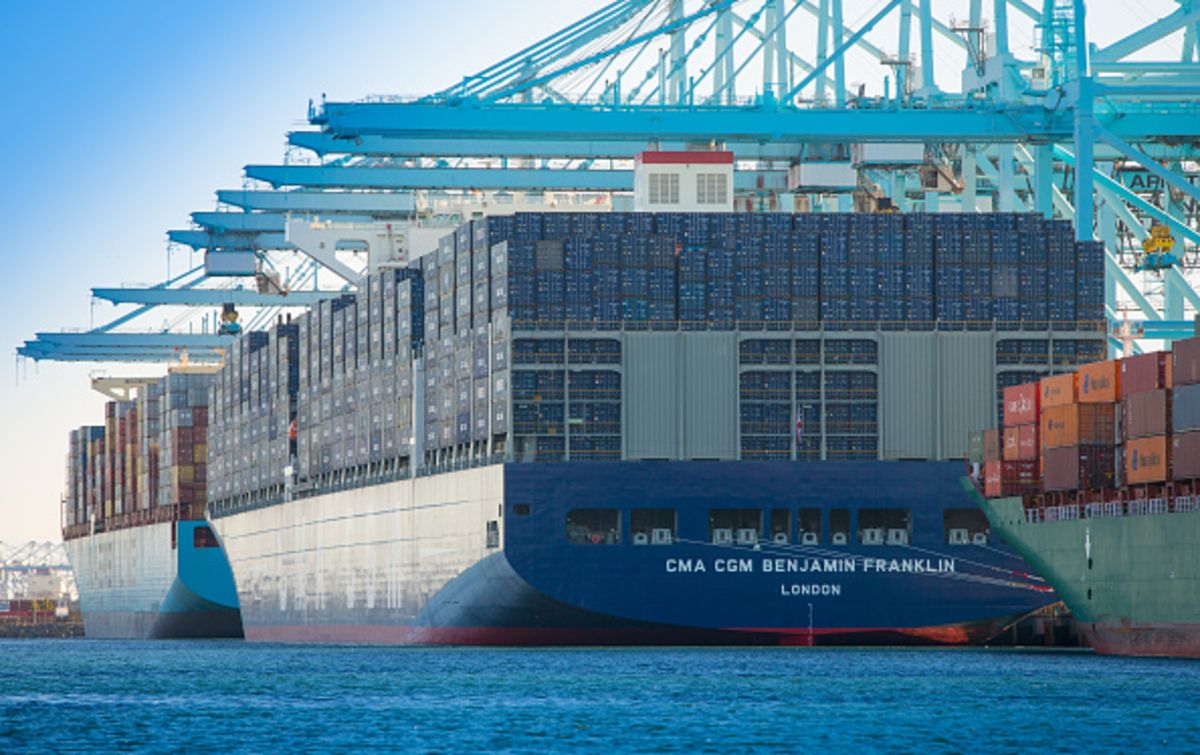The devaluation of the naira slashed Nigeria’s trade deficit by 44 per cent to N196.5bn in June, from N351.3bn in March, the National Bureau of Statistics said on Tuesday.
The bureau said the value of exports increased by 63 per cent to N1.9tn in the quarter.
“The improvement in export value is largely due to the depreciation in the value of the naira,” the NBS said in a statement.
The nation’s total value of trade increased to N3.94tn in the second quarter, up from N2.7tn, it said
The NBS, in the merchandise trade statistics for the second quarter of this year, said the country recorded a 49 per cent increase in trade from N2.65tn in the first quarter to N3.94tn.
The bureau in the report stated that the increase in trade was as a result of a rise of N725.6bn in the value of exports against what was recorded in the preceding quarter.
It said as a result of the improvement in the second quarter trade, the country’s negative trade balance had now reduced by N154.8bn to N196.5bn.
The report stated, “The total value of Nigeria’s merchandise trade in Q2, 2016 was N3.94tn. This was 49 per cent more than the value of N2.64tn recorded in the preceding quarter.
“This development arose from a rise of N725.6bn or 63.3 per cent in the value of exports (largely due to the exchange rate gains), combined with a rise of N570.8bn or 38.1 per cent in the value of imports against the levels recorded in the preceding quarter.
“The current trade position brought the country’s negative trade balance to N196.5bn during the period under review. This shows a N154.8bn reduction in the country’s trade deficit over the previous quarter.”
In terms of the structure of Nigeria’s trade, the report stated that the country’s import stood at N2.06tn at the end of the second quarter, representing an increase of 38.1 per cent from the value N1.9tn recorded in the preceding quarter.
As with exports, it said the increase in import value could be traced to a decline in the value of the naira.
It said capital goods and parts, with N663.6bn or 32.1 per cent, accounted for the highest chunk of the country’s imports.
This was followed by industrial supplies with N421.2bn or 20.4 per cent, and transport equipment and parts with N356.1bn or 17.2 per cent.
It said the import trade by direction showed that the country imported goods mostly from China, the Netherlands, the United States, India and the United Kingdom.
Trade with these countries accounted for N493.5bn or 23.9 per cent; N285.7bn or 13.8 per cent; N199bn or 9.6 per cent; N124.9bn or six per cent; and N119.3bn or 5.8 per cent, respectively, of the total value of goods imported during the quarter.
For export, the report put the value of the trade at N1.87tn in the second quarter, indicating an increase of N725.6bn or 63.3 per cent over the value recorded in the preceding quarter.
“The improvement in export value is largely due to the depreciation in the value of the naira,” it added.
The structure of the export trade, the report added, was still dominated by crude oil exports, which contributed N1.49tn or 79.7 per cent to the value of total domestic export trade in 2016.
“Whenever there is a devaluation of the currency it encourages exporters because they get more naira for the goods sold at the international market or priced in dollar,” an analyst at Lagos-based Financial Derivatives Company, Opeyemi Oguntade, told Reuters.
“For the country and the exporter, the thing to consider is if the benefit of the devaluation is high enough to outweigh the cost of rising inflation,” he added.
Nigeria’s leading export markets include India, the US, Spain and the Netherlands.

 Forex3 weeks ago
Forex3 weeks ago


 Naira2 weeks ago
Naira2 weeks ago
 Billionaire Watch2 weeks ago
Billionaire Watch2 weeks ago




 Naira2 weeks ago
Naira2 weeks ago




 Naira2 weeks ago
Naira2 weeks ago




 Naira1 week ago
Naira1 week ago




 Naira4 weeks ago
Naira4 weeks ago




 Naira3 weeks ago
Naira3 weeks ago






















